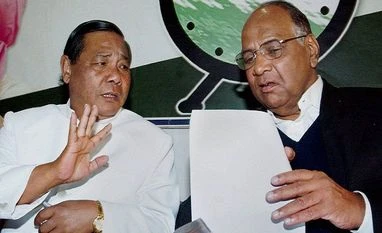Sangma was born in Meghalaya but left the Garo Hills, his home and the place where he learnt politics, about 20 years ago. He has held his Lok Sabha constituency, Tura, nine times. He was considered one of the Congress’ most promising young politicians, was picked up and promoted by Indira Gandhi and rose to become Speaker of the Lok Sabha, a task he carried out with patience and wily good humour.
But, carried away by Sharad Pawar, Sangma joined the Nationalist Congress Party (NCP) and became part of the group that found Sonia Gandhi’s “foreign origins” and Congress’ “dynastic politics” unacceptable. In 2004, Sangma contested and again won the Tura constituency, only to quit it for the state assembly elections.
Also Read
In 2008, as dynasties go, the Sangma dynasty did pretty well for itself. Between P A Sangma and his two sons, Conrad and James, the family controlled five per cent of the 60-member Assembly. Meanwhile, his daughter, Agatha, had contested the Lok Sabha seat he had vacated and won it. She was quickly sworn in as minister of state for rural development in the Manmohan Singh government.
NCP, most flexible of parties, had found Sangma useful and he became head of the party’s Meghalaya unit. However, they parted ways, once in 2004 when he joined the Trinamool Congress. He returned to the NCP eventually but when Sangma laid claim to become the President of India and the NCP was supporting the claim of Congressman Pranab Mukherjee, the relationship became untenable. Obviously, Sangma lost the election. Later, he floated a National People’s Party.
Sangma was good-natured, unpretentious and always had time for reporters. In many ways, he was a voice for the Northeast region in Delhi.
)